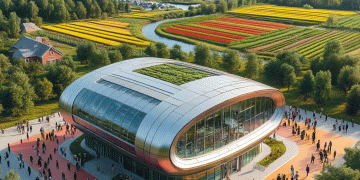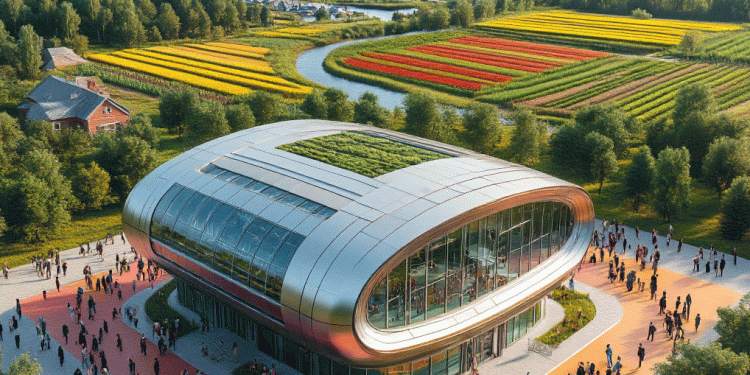Gone are the days when farming was solely about manual labor and guesswork. Today, agriculture is undergoing a digital and biotechnological revolution. According to the World Economic Forum, by 2030, 70% of new value in agriculture will come from digital and data-driven solutions, including AI, IoT, and precision farming.
In Russia, the national project “Technological Support for Food Security” is accelerating this transformation. Investments in agri-tech are surging, with smart farms, automated irrigation systems, and vertical farming becoming mainstream. A 2023 report by McKinsey highlights that farms using AI-driven analytics see up to 20% higher yields while reducing water and fertilizer use.
Biotech, Hydroponics, and Agri-Robots: The New Farming Toolkit
Biotechnology is reshaping crop resilience, with genetically modified and CRISPR-edited crops that withstand droughts and pests. Meanwhile, hydroponics and vertical farms are maximizing space efficiency—a critical advantage as arable land shrinks globally.
Agri-robots are another game-changer. Companies like AgroBot and John Deere are deploying autonomous tractors and drones for planting, monitoring, and harvesting. By 2025, the global agri-robot market is projected to reach $20.6 billion, according to MarketsandMarkets.
The Next Generation of Agri-Professionals
The sector now demands not just agronomists but also programmers, engineers, and geneticists. To meet this need, Russia has launched agri-tech classes in schools, with 585 classes expected by 2024 and 18,000 by 2030. These programs blend theory with hands-on experience—students grow microgreens, analyze DNA, and visit high-tech farms.
One success story is Mikhail Nikiforov, an eighth-grader in Batetsky, who now dreams of developing automated farming machinery. His story reflects a broader trend: Gen Z sees agriculture as a field where innovation meets real-world impact.
Why Youth Are Choosing Agri-Careers
Several factors are driving this shift:
- Declining appeal of urban life – High costs and stress push young people toward rural opportunities.
- Purpose-driven work – Millennials and Gen Z want careers with tangible societal benefits.
- Eco-conscious demand – Organic and sustainable farming is booming.
- Government support – National projects offer funding and training for agri-entrepreneurs.
Agriculture is the Industry of Tomorrow
By 2030, farming will be one of the most technology-intensive sectors, blending robotics, biotech, and AI. For professionals and investors, this is a golden opportunity—whether in R&D, automation, or sustainable practices.
If you’re looking for a career that combines innovation, stability, and global impact, agriculture is the place to be.































